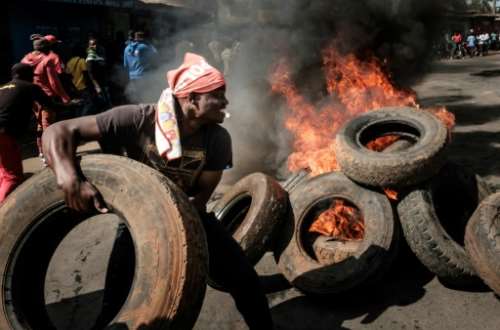On Thursday, the third day of opposition protests against the government and the high cost of living, there was violence in Kenya.
Security was tight, with police roaming the city of Nairobi in riot gear after violent altercations broke out at similar protests on Monday.
On Thursday, scores of civilians engaged police in running skirmishes while throwing rocks and burning tyres in the crowded Nairobi neighbourhoods of Mathare and Kibera. Police replied with tear gas.
Protesters also threw rocks at police and ignited bonfires in the middle of the road in western Kenya’s lakeside strongholds of Kisumu and Homa Bay, home to opposition leader Raila Odinga.
Every Monday and Thursday, Odinga has called for rallies, accusing President William Ruto of stealing the election last year and failing to rein in the rising cost of living.
The government has deemed the protests illegal. On prior days, the protests turned violent, with police using tear gas, water cannon, and occasionally live ammunition, while looters went on the rampage.
Two civilians have been killed and 51 police officers and 85 civilians injured, according to government figures.
The international community and religious leaders have called for calm, voicing fears that the violence could degenerate into the ethnic post-election fighting witnessed after the 2007 election that claimed the lives of more than 1,100 people.
“We are deeply concerned by the recent unrest and violence as well as destruction of places of worship and private property,” eight foreign embassies, including the United States and former colonial power Britain said in a joint statement Wednesday.
“We therefore call on all leaders and all Kenyans to maintain peace, show restraint, and work toward a swift resolution for the common good of Kenya.”
The African Union also appealed Tuesday for calm and political dialogue to put paid to chaos.


